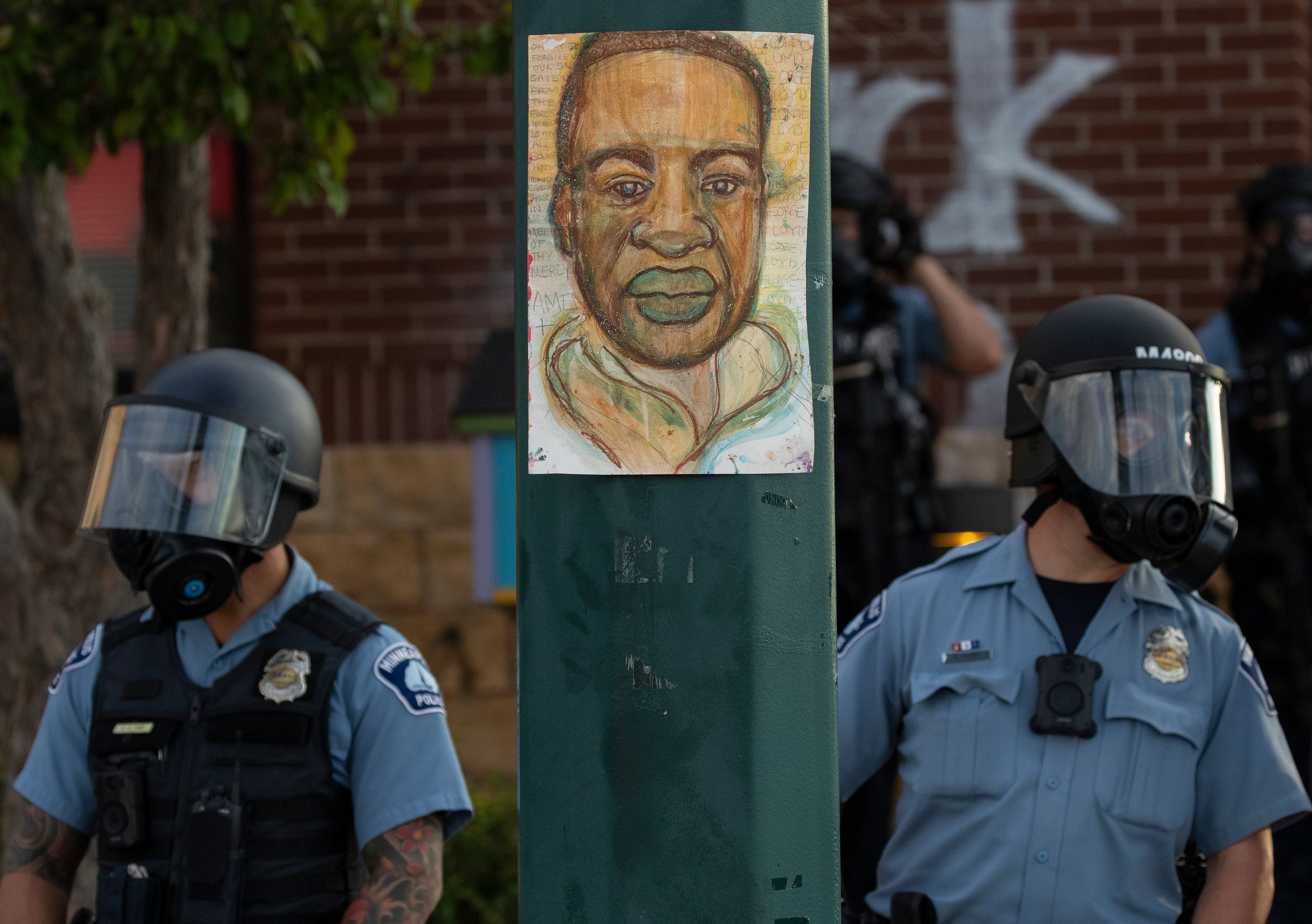The Independent's journalism is supported by our readers. When you purchase through links on our site, we may earn commission.
What have we learnt two years after George Floyd’s murder?
There remains a core stumbling block to progress – shifting the power that police have in taking innocent lives


Protests are not new to a nation like the United States, which has gone through generations of civil unrest to address racial discrimination.
When former police officer Derek Chauvin pinned down George Floyd on 25 May 2020, after suspecting him of using a counterfeit twenty-dollar bill, resulting in his death, the African American man became an emblem of a global call for police reformation. Footage of the incident was shown worldwide, igniting a call to action for justice and an inquiry into racial prejudice even beyond the borders of the US.
However, two years on in Minneapolis, several other men including Daunte Wright and Amir Locke have been among the black men who have been shot and killed by the police. Wright’s death occurred as a result of police officer Kim Potter mistaking her gun for a taser. Amir Locke was wrongfully shot while asleep during a no-knock warrant. There is a striking resemblance to what was and continues to happen today: the killing of black men.
In a piece for The Independent in October 2021. I wrote about the residue of black trauma and its effect on my mental health and others in the black community who have been vocal through activism. My own work through my organisation Charisma Campaign and my writing were motivated by challenging the detrimental representation of the black community. However, in hindsight, there remains a core stumbling block to progress – shifting the power that police have in taking innocent lives. A legislative one that has struggled to be implemented in order to address these killings. Activists have struggled to keep the discourse in the public eye, but the bill still stands.
For now, the dream of seeing, “Blackness that is free from trauma… to grant people within the Black community the natural, humane liberty to unapologetically express their happiness without having to constantly be chained to the scars of the past” is promising, yet fleeting. The past continues to remain attached to the recurrent reality of the present.
Federal investment in local law enforcement in the US started during the war on poverty and monumental civil rights legislation in the 60’s. Today, despite activists calling for years for reform after the death of George Floyd, the death of several black men have followed, and the state is still divided.
Ben Crump, who represented George Lloyd’s case, who also recently published a piece in the Washington post, said: “More than 140 police oversight and reform bills passed at the state and local levels after Floyd’s death. But the sweeping, comprehensive reform that would transform policing and reframe the relationship between police departments and people of color stalled from a lack of political will. The George Floyd Justice in Policing Act passed in the House but died in the Senate.”
To keep up to speed with all the latest opinions and comment, sign up to our free weekly Voices Dispatches newsletter by clicking here
To mark the second anniversary of the death of George Floyd, the US President Joe Biden issued an executive order lacking the same legislative power to the failing bill in the Senate. The will to push forward continues. Chauvin was convicted last year and sentenced to 22 years for Floyd’s death, his charges included second-degree unintentional murder, third-degree murder and second-degree manslaughter.
It’s undeniable that the death of one man spoke for others who have lost their lives under the same law enforcement system, and also unravelled cases of racial prejudice globally.
The changes are still a worthy call for justice. Two years on, the truly deserving justice feels like the one figuratively described in Maya Angelou’s poem, the Caged Bird, “longed for still and his tune is heard on the distant hill”.
Join our commenting forum
Join thought-provoking conversations, follow other Independent readers and see their replies
Comments